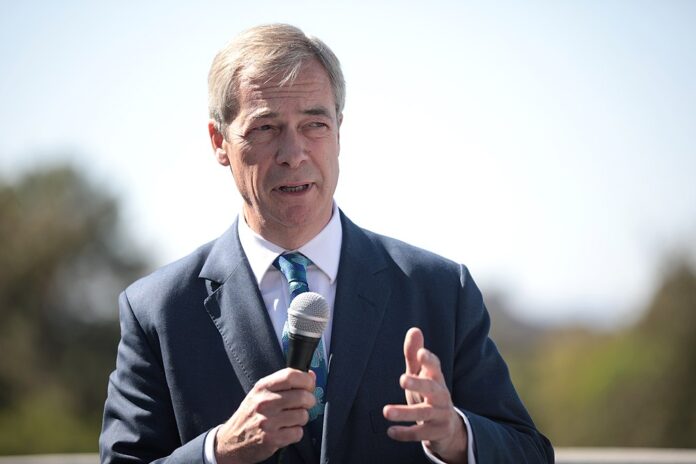Former Brexit Party leader accuses Tories of ethical misconduct, likening their behaviour to a tenant stripping a property before eviction
Nigel Farage, renowned for his outspoken political stance, has launched a blistering attack on the Conservative Party, accusing them of moral bankruptcy and unethical conduct as the 2024 general election approaches. His critique, delivered amidst growing scrutiny over the Tories’ policies and leadership decisions, paints a stark picture of distrust and disillusionment within right-wing factions.
Farage’s analogy strikes at the heart of public perception, comparing the Conservative Party’s actions to those of a dubious tenant who removes essential fixtures from a rental property before being forcibly ejected. This metaphorical condemnation suggests a deep-seated concern about the integrity and accountability of the party under current leadership.
Embed from Getty ImagesThe former Brexit Party leader’s remarks come at a pivotal time for the Conservatives, led by Rishi Sunak, as they navigate through a tumultuous political landscape fraught with internal and external challenges. Farage’s accusation implies that recent developments have further eroded public confidence in the party’s ability to govern ethically.
Analysis:
Political: Farage’s criticism represents a significant fissure within the conservative bloc, signalling potential rifts over policy direction and leadership credibility under Sunak’s administration. It underscores broader ideological divisions and discontent among right-wing supporters, impacting the party’s unity and electoral prospects.
Social: Socially, Farage’s analogy resonates deeply with public sentiment regarding trust in political institutions. It amplifies ongoing debates about ethical standards in governance and the public’s expectations of transparency from elected officials. This critique contributes to a broader discourse on political integrity and accountability.
Racial: While racial issues aren’t explicitly central to Farage’s critique, the implications of ethical misconduct can intersect with societal concerns about fairness and justice, particularly within diverse communities affected by conservative policies and governance practices.
Gender: Similarly, gender dynamics in political criticism influence perceptions of leadership integrity and ethical conduct within the Conservative Party and the broader political landscape. Farage’s critique may resonate differently among male and female voters, impacting electoral dynamics.
Economic: Economically, Farage’s condemnation could affect public confidence in the Conservative Party’s ability to manage economic policies effectively. It raises questions about fiscal responsibility and governance practices, potentially influencing voter perceptions of economic stewardship during election cycles.
